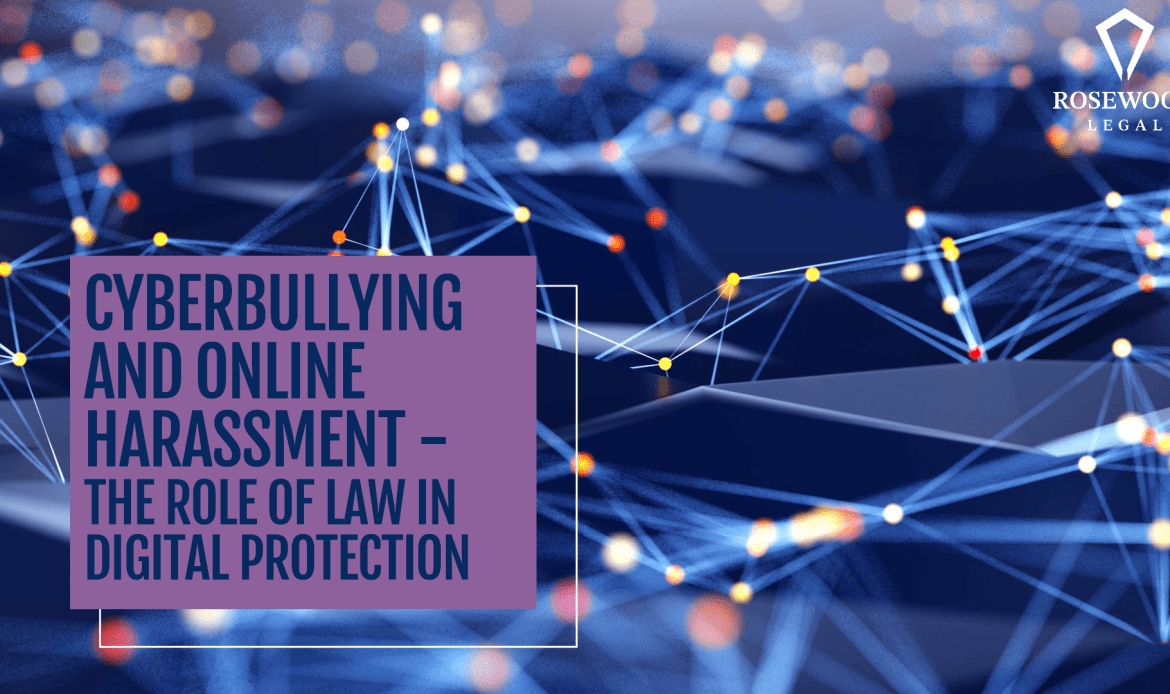The global pandemic in 2020 resulted in a tremendous increase in the usage of social media in Nigeria and across the world. While the advancement of the digital world has provided opportunities to communicate, network, and generate income, it has also introduced significant challenges. One such issue is cyberbullying. In response, the Nigerian government introduced the Cybercrimes (Prohibition, Prevention, and Enforcement) Act in 2015, which includes provisions to address various forms of online harassment. This article aims to raise awareness of cyberbullying, its societal impact, and how existing laws can help tackle the growing rate of online harassment in Nigeria.
CYBERBULLYING AND ITS IMPACT ON SOCIAL INTERACTION
Cyberbullying is defined as “the use of electronic communication to bully or intimidate someone, typically by sending threatening messages.[1]“ It involves using digital technology to harass, threaten, and embarrass individuals. This can take various forms, such as offensive name-calling, spreading false rumors, sharing unsolicited explicit content without consent, stalking, and making threats.
In Nigeria, over 40% of active social media users have reported experiencing cyberbullying, with Facebook leading the way, followed by platforms like X (formerly Twitter), Instagram, TikTok, and Telegram. Common forms of online harassment include offensive name-calling, spreading malicious rumors, and threatening to post explicit content online. A disturbing trend in the Nigerian social media space between 2020 and 2023 was the rampant posting of explicit content without consent, leading to severe emotional and psychological consequences for the victims.
The impact of cyberbullying on individuals can be physical, psychological, and emotional, potentially leading to violence, hate speech, and misinformation. In severe cases, it can result in trauma, depression, and suicidal thoughts. The nature of online harassment often exacerbates the effects, as the content can remain online indefinitely, following the principle that “the internet never forgets.
LEGAL FRAMEWORK AGAINST CYBERBULLYING AND ONLINE HARASSMENT IN NIGERIA
The Cybercrimes (Prohibition, Prevention, and Enforcement) Act of 2015 is Nigeria’s primary legislation addressing cybercrimes. In 2024, Section 24 of the Act was amended to eliminate ambiguities and reduce misuse by law enforcement. The revised provision states:
“Anyone who intentionally sends a message through a computer system or network that is pornographic, indecent, obscene, menacing, or knowingly false, intending to cause harm or disruption to public order, shall be liable to a fine of up to ₦7,000,000 or imprisonment for up to 5 years or both.”
Cyberbullying can also be pursued under the Criminal Code of Nigeria as a tort of defamation if the necessary elements are proven. The Criminal Code Act[5] makes it an offense to threaten a person’s reputation or property or to stalk them persistently. The Federal High Court is responsible for enforcing the provisions of the Cybercrimes Act.
Although Nigerians often exercise their right to freedom of speech as protected by the Constitution of the Federal Republic of Nigeria, it is essential to understand the fine line between freedom of speech and hate speech. The Supreme Court’s ruling in Sowore v. FRN[2] emphasized that while free speech is a constitutional right, it is not without limits, particularly where it may incite violence or disrupt public order.
CASE STUDIES OF CYBERBULLYING IN NIGERIA
One prominent case of cyberbullying occurred in October 2023 when social media activist Verydarkman (VDM) accused media personality Iyabo Ojo of indecent acts involving her daughter. Ojo pursued legal action against VDM, leading to charges under Section 24 of the Cybercrimes Act[4].
Another notable case involved a TikTok content creator and another media personality known as Eniola Badmus, This content creator was sentenced to three years in prison or a fine of ₦150,000 for defamation and spreading false information about the actress.
In Ado-Ekiti, a man was sentenced to two years in prison and fined ₦500,000 for posting nude photos of his ex-girlfriend online without her consent. These cases highlight the importance of legal recourse in addressing cyberbullying in Nigeria.
PREVENTIVE MEASURES TO CURB CYBERBULLYING IN NIGERIA
While staying off the internet may seem like the simplest solution to avoid cyberbullying, the prominence of digital communication makes this impractical. Instead, several preventive measures can help reduce the occurrence of cyberbullying:
- Education: Lack of awareness leads to an underestimation of the severity of cyberbullying. Parents, employers, and the government must educate individuals on the consequences of online harassment.
- Reporting Systems: The government should establish an accessible reporting system for individuals who feel unsafe online.
- Support Systems: Victims of cyberbullying need access to support networks to help them cope with the trauma and recover from the psychological effects.
- Stronger Legislation: While the Cybercrimes Act addresses certain aspects of cyberbullying, more explicit laws are needed to address online harassment comprehensively.
- Improved Cybersecurity: Social media platforms must implement stricter security measures to detect and prevent violations of their guidelines, including suspending or banning offenders from using their application to promote such acts. Nigeria should also invest in technology that can track and hold cyberbullies accountable.
CONCLUSION
Cyberbullying is one of the unfortunate consequences of technological advancement. Its effects can be devastating, leading to severe psychological harm to victims. It is essential that Nigeria continues to strengthen its legal framework and implement measures to protect individuals from online harassment and foster a safer digital environment.
Authors

Lateefat Omotomilola Hakeem-Bakare
Principal Partner
Rosewood Legal
lhakeem-bakare@rosewoodlegal.com
Ifedamola G. Oladimeji
Trainee Associate
Rosewood Legal
Ioladimeji@rosewoodlegal.com
Published on Tuesday, December 10, 2024

